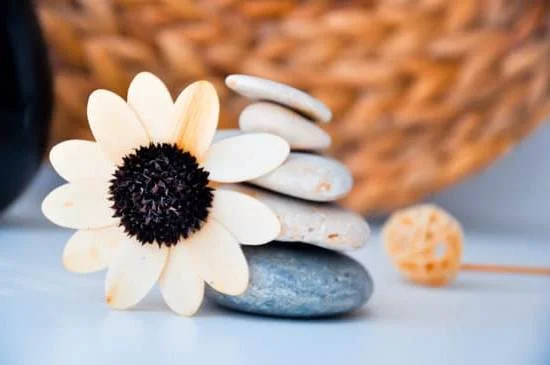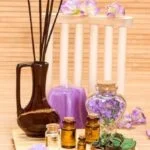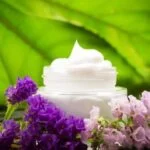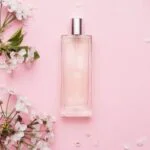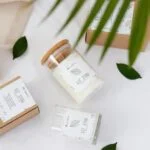Holistic aromatherapy is a practice that harnesses the power of essential oils to promote physical and psychological well-being. It goes beyond simply enhancing the scent of a space; holistic aromatherapy aims to address the whole person, taking into account the mind, body, and spirit. In this introductory section, we will explore what exactly holistic aromatherapy is and how it can enhance our overall health.
Holistic aromatherapy has ancient roots that can be traced back thousands of years. This holistic healing practice originated in ancient civilizations such as Egypt, China, and India, where essential oils were used for their medicinal properties and spiritual significance. Over time, holistic aromatherapy has evolved into a comprehensive approach that integrates knowledge from various cultures and traditions.
At its core, holistic aromatherapy is based on the principles of holism, which emphasizes the interconnectedness of all aspects of our being. It recognizes that our physical symptoms are often manifestations of deeper emotional or energetic imbalances. By addressing these underlying causes through the use of essential oils, holistic aromatherapy aims to restore harmony and promote overall well-being.
Through this article, we will delve into the fundamentals of holistic aromatherapy and explore its numerous benefits beyond scent. We will also discuss different application methods and provide tips on how to select personalized blends for your specific needs. Furthermore, we will guide you on incorporating holistic aromatherapy into your daily routine and highlight important safety measures to ensure a positive experience.
Join us on this journey as we uncover the essence of holistic aromatherapy and discover how it can transform your life by nurturing both the body and mind with its natural healing properties.
Origins of Holistic Aromatherapy
Holistic aromatherapy has a rich history that dates back thousands of years. Its origins can be traced to ancient civilizations such as Egypt, China, and India, where aromatic plants and essential oils were highly valued for their therapeutic properties. In these ancient cultures, the use of aromatic oils was not only limited to physical ailments but also extended to spiritual and emotional well-being.
In ancient Egypt, for example, essential oils were used in religious ceremonies and rituals. They believed that these precious oils possessed the power to connect with the divine and enhance their spiritual connection. The Egyptians were also known for using aromatic oils for medicinal purposes, incorporating them into balms, ointments, and perfumes.
In China, the art of aromatherapy was developed along with traditional Chinese medicine. Essential oils were used in acupuncture treatments and herbal remedies to restore balance in the body’s energy systems. Aromatherapy was considered an integral part of maintaining overall health and well-being.
India is another country with a deep-rooted tradition of aromatherapy. Ayurveda, the ancient Indian holistic healing system, incorporates essential oils in various treatments to promote harmony between mind, body, and spirit. Ayurvedic practitioners believe that different scents have unique effects on our doshas (energetic forces), thus influencing our well-being.
As holistic aromatherapy gained recognition around the world, its principles and techniques evolved over time. Today, it encompasses a wide range of practices that aim to heal not only physical ailments but also address mental and emotional imbalances.
Unveiling the ancient roots of holistic aromatherapy allows us to appreciate its long-standing heritage and understand why it continues to be a popular practice today. By embracing these ancient traditions, we can tap into the wisdom of our ancestors and harness the therapeutic benefits of essential oils for our own well-being.
The Fundamentals
Holistic aromatherapy is a therapeutic approach that utilizes essential oils derived from plants to promote physical, emotional, and mental well-being. The principles of holistic aromatherapy are rooted in the belief that the body, mind, and spirit are interconnected, and by addressing all aspects of an individual’s being, true healing can be achieved. In this section, we will delve deeper into the fundamental principles that guide holistic aromatherapy.
A Whole-Body Approach
One of the core principles of holistic aromatherapy is that it takes a whole-body approach to healing. Rather than targeting specific symptoms or conditions, holistic aromatherapy aims to restore balance and harmony to the entire person. This means that it addresses not only physical ailments but also emotional and mental imbalances.
By recognizing that each person is unique and has different needs, holistic aromatherapy seeks to create personalized treatment plans. Essential oils are selected based on their therapeutic properties and how they can support specific areas of concern. Whether someone is dealing with stress, pain, insomnia, or low energy levels, there are essential oils that can help restore equilibrium.
Treating the Root Cause
Another principle of holistic aromatherapy is the focus on treating the root cause rather than just symptoms. Instead of masking or suppressing symptoms temporarily, this approach aims to identify and address the underlying cause of an issue. Understanding that symptoms often arise from imbalances within the body or unresolved emotional states allows for a more comprehensive and lasting healing process.
Holistic aromatherapy views physical symptoms as messages from the body signaling an imbalance. By incorporating essential oils into one’s wellness routine, it is believed that they can help support natural healing processes by restoring balance to these imbalances.
Integration with other Modalities
Holistic aromatherapy embraces collaboration and integration with other complementary modalities such as massage therapy, acupuncture, meditation, and yoga. These practices can enhance the effectiveness of holistic aromatherapy by providing a synergistic effect.
For example, aromatherapy massage combines the benefits of touch and scent to promote relaxation, relieve muscle tension, and support emotional well-being. By combining aromatherapy with these other modalities, individuals can achieve a more comprehensive approach to healing that addresses their physical, emotional, and spiritual needs.
Benefits Beyond Scent
Holistic aromatherapy offers a wide range of benefits that go beyond simply enjoying pleasant scents. This section will explore how holistic aromatherapy enhances physical well-being, providing relief and support for various health concerns.
Aids in Healing and Recovery
One of the key benefits of holistic aromatherapy is its ability to aid in healing and recovery. Essential oils have natural healing properties that can address various physical ailments. For example, lavender oil is known for its calming and soothing effects on the body, making it effective in reducing pain and inflammation. Peppermint oil, on the other hand, has analgesic properties that can alleviate headaches and muscle soreness.
Moreover, holistic aromatherapy can also promote faster healing after injuries or surgeries. Essential oils like tea tree oil have antimicrobial properties that help prevent infections in wounds. Eucalyptus oil has expectorant properties that can clear congestion and promote respiratory health.
Boosts Immune System
Another way holistic aromatherapy enhances physical well-being is by boosting the immune system. Certain essential oils have powerful immune-boosting properties that can help protect against common illnesses and infections. Oils like lemon, eucalyptus, and oregano are known for their antimicrobial and antiviral properties.
In addition, the inhalation of essential oils can stimulate the production of white blood cells, which are crucial for fighting off pathogens and keeping your immune system strong. By incorporating these oils into your aromatherapy routine, you can support your immune system’s defense mechanisms and reduce the risk of falling ill.
Promotes Restful Sleep
Sleep plays a vital role in maintaining good physical health, yet many people struggle with insomnia or poor sleep quality. Holistic aromatherapy can be a helpful tool in promoting restful sleep naturally. Certain essential oils such as lavender, chamomile, and bergamot have sedative properties that can induce a state of relaxation, calm the mind, and improve sleep quality.
These oils can be diffused in the bedroom or added to a warm bath before bedtime. Additionally, applying diluted essential oils topically to pulse points or using them in a nighttime massage oil can enhance their sleep-inducing effects. By incorporating holistic aromatherapy into your bedtime routine, you can create a soothing environment that promotes deep and restorative sleep.
Nurturing the Mind
Holistic aromatherapy not only has physical benefits but also offers numerous psychological benefits. The use of essential oils can have a profound impact on the mind, promoting relaxation, reducing stress and anxiety, improving mood, and enhancing overall mental well-being.
One of the primary psychological benefits of holistic aromatherapy is its ability to promote relaxation and reduce stress. Certain essential oils such as lavender, chamomile, and bergamot have calming properties that can help relax the mind and body. Inhaling these oils or using them in a massage oil can help ease feelings of tension and promote a sense of tranquility.
Another significant psychological benefit is the ability of certain essential oils to uplift mood and improve emotional well-being. Essential oils like lemon, grapefruit, and peppermint have stimulating properties that can boost energy levels and elevate mood. These oils are often used in diffusers or as part of personal inhalers to provide an instant pick-me-up during times of fatigue or low spirits.
Furthermore, holistic aromatherapy can also aid in reducing symptoms of anxiety and depression. Oils such as ylang-ylang, clary sage, and frankincense are known for their calming effects on the nervous system and can help alleviate feelings of anxiety or sadness. The use of these oils through inhalation or topical application can support emotional balance and provide relief from emotional distress.
In summary, holistic aromatherapy offers a wide range of psychological benefits by promoting relaxation, reducing stress, elevating mood, and supporting emotional well-being. By incorporating essential oils into daily routines through techniques such as inhalation or topical application, individuals can nurture their minds and experience enhanced mental health and wellness.
| Psychological Benefits | Examples |
|---|---|
| Promotes relaxation | Lavender, chamomile, bergamot |
| Uplifts mood | Lemon, grapefruit, peppermint |
| Reduces anxiety and depression | Ylang-ylang, clary sage, frankincense |
Holistic Aromatherapy Techniques
When it comes to holistic aromatherapy, there are various techniques that can be used to apply essential oils and reap their benefits. The method chosen depends on the desired outcome and personal preference. Let’s explore some of the most common application methods:
- Inhalation: Inhalation is a simple and effective way to experience the benefits of essential oils. It involves breathing in the aroma of the oils either directly from the bottle, by adding a few drops to a tissue or handkerchief, or using a diffuser. Inhalation can help with respiratory issues, improve mood, and promote relaxation.
- Topical Application: This method involves applying essential oils directly to the skin, usually in diluted form with a carrier oil such as coconut oil or almond oil. Topical application is commonly used for massage therapy, as well as targeting specific areas of pain or discomfort. It’s important to perform a patch test before applying any oils to ensure there are no allergic reactions.
- Bathing: Adding essential oils to a warm bath is not only indulgent but also an effective way to relax and unwind. The steam from the bath will carry the aroma of the oils, providing both inhalation and topical benefits. It’s recommended to mix a few drops of essential oil with a carrier like Epsom salts or milk before adding them to the bathwater.
- Compresses: Compresses involve soaking a cloth in water infused with essential oils and applying it directly to an area of concern or discomfort. This method can be particularly useful for muscle tension, headaches, or swelling.
- Steam inhalation: This technique is especially beneficial for respiratory issues such as congestion or sinusitis. Simply add a few drops of essential oil (such as eucalyptus or peppermint) into hot water and inhale deeply while covering your head with a towel to create a steam tent.
By experimenting with these various application methods, individuals can customize their aromatherapy experience based on their specific needs. It’s important to remember that essential oils are highly concentrated and should always be used with caution. Consulting with a certified aromatherapist or healthcare professional is recommended, especially for those who are new to holistic aromatherapy.
Selecting the Right Essential Oils
When it comes to holistic aromatherapy, one of the most important aspects is selecting the right essential oils for your needs. With countless options available, it can be overwhelming to choose which oils are best suited for you. However, by understanding how different oils interact with our bodies and knowing our specific goals, we can create personalized aromatherapy blends that are tailored to our individual needs.
Firstly, it is crucial to consider the properties and effects of various essential oils. Each oil has its unique characteristics and benefits. For example, lavender oil is well-known for its calming and relaxing properties, making it an excellent choice for reducing stress and anxiety. On the other hand, eucalyptus oil is commonly used to alleviate congestion and respiratory issues due to its decongestant properties.
To choose the right essential oils for your personalized blend, start by identifying your goals or concerns. Are you looking to soothe sore muscles? Improve focus and concentration? Boost immunity? Once you have a clear objective in mind, you can then select essential oils that align with those goals.
Furthermore, it is important to consider any potential allergies or sensitivities when choosing your oils. Some people may have adverse reactions to certain oils or their components. It is advisable to perform a patch test before using any new essential oil on your skin or diffusing it in your living space.
By taking into account the properties of different essential oils and understanding your individual needs and goals, you can create personalized aromatherapy blends that cater specifically to you. Whether you seek relaxation, improved mood, or physical relief, selecting the right essential oils will allow you to optimize the benefits of holistic aromatherapy and enhance your overall well-being.
Holistic Aromatherapy for Everyday Life
Incorporating holistic aromatherapy into your daily routine can be a simple and effective way to enhance your overall well-being. Whether you are looking to improve your physical health, reduce stress, or promote relaxation, there are various ways to incorporate aromatherapy into your everyday life.
One of the easiest ways to incorporate aromatherapy into your daily routine is through the use of essential oils in a diffuser. A diffuser is a device that disperses essential oils into the air, allowing you to enjoy their therapeutic benefits throughout your home or office. By adding a few drops of essential oil to a diffuser, you can create an inviting atmosphere and transform your space into a calming sanctuary.
Another way to incorporate aromatherapy into your daily routine is through the use of personal inhalers or roll-on blends. Personal inhalers are small tubes that contain a cotton wick soaked in essential oils. You can carry them with you wherever you go and inhale the aroma whenever you need a quick pick-me-up or moment of relaxation.
Roll-on blends are convenient and easy-to-use, as they allow you to apply essential oils directly onto your skin. They can be used for targeted areas such as temples for headache relief or wrists for stress reduction.
| Method | Description |
|---|---|
| Diffuser | A device that disperses essential oils into the air |
| Personal Inhaler | A small tube containing cotton soaked in essential oils for portable use |
| Roll-On Blends | Essential oils applied directly onto the skin for targeted use |
In addition to these methods, incorporating aromatherapy into your daily routine can also involve using essential oils in your bath, adding them to your skincare routine, or creating personalized blends for massage. The key is to find what works best for you and integrate aromatherapy into activities you already enjoy.
By incorporating holistic aromatherapy into your daily routine, you can experience the many benefits it has to offer. From reducing stress and anxiety to promoting better sleep and improving mood, aromatherapy can help create a sense of balance and well-being in your life. So why not start integrating aromatherapy into your everyday life today?
Safety Measures
Holistic aromatherapy is a powerful tool for promoting overall well-being, but it is essential to approach it with caution and awareness. Like any other therapeutic practice, there are certain safety measures and risks that need to be considered when using essential oils in holistic aromatherapy.
First and foremost, it is crucial to remember that essential oils are highly concentrated substances extracted from plants. While they offer numerous benefits, they can also be potent and may cause adverse reactions if used incorrectly or in excessive amounts. It is recommended to always dilute essential oils before application, especially when using them topically. Carrier oils like coconut oil or almond oil can help reduce the risk of skin irritation or sensitization.
Additionally, it is important to familiarize yourself with each specific essential oil you plan to use. Different oils have different properties and precautions associated with them. Some essential oils may not be suitable for pregnant women, individuals with certain medical conditions such as asthma or epilepsy, or children under a certain age. Research each oil thoroughly and consult with a qualified aromatherapist or healthcare professional if you have any concerns or questions.
Proper storage of essential oils is another aspect of safety in holistic aromatherapy. Essential oils should be kept in dark glass bottles away from direct sunlight and heat to preserve their potency and prevent degradation. Additionally, ensure that the caps are tightly sealed to prevent oxidation or evaporation of the oil.
Lastly, it is crucial to be aware of potential interactions between essential oils and medications you may already be taking. Some essential oils can interact with certain medications, either enhancing their effects or causing adverse reactions. If you are currently taking medications, consult with your healthcare provider before using essential oils to avoid any contraindications.
By following these safety measures and being mindful of the potential risks involved in holistic aromatherapy, you can enjoy the benefits of this practice while minimizing any potential harm. Remember that everyone’s body chemistry is unique, so it is important to listen to your body and adjust your aromatherapy practices accordingly. With the proper knowledge and precautions, holistic aromatherapy can be a safe and effective way to enhance your overall well-being and maintain balance in your life.
Conclusion
In conclusion, holistic aromatherapy is a powerful tool that can enhance physical well-being and nurture the mind. Its ancient roots and principles make it a unique and effective form of therapy. By incorporating aromatherapy into your daily routine, you can experience the benefits beyond scent and create a balanced lifestyle.
Choosing the right essential oils is crucial in achieving personalized aromatherapy blends that address individual needs. Whether you are seeking relaxation, stress relief, or a boost in focus and concentration, there is an essential oil blend that can cater to your specific requirements.
However, it is important to remember that safety measures should always be taken when using essential oils. The potent nature of these oils means that they must be handled with care. Proper dilution and adherence to recommended guidelines are essential to avoid any adverse reactions.
Frequently Asked Questions
What is the holistic approach to aromatherapy?
The holistic approach to aromatherapy is a comprehensive and integrated approach that considers the well-being of the whole person – mind, body, and spirit. It goes beyond just using essential oils for physical ailments and embraces a broader concept of healing.
Holistic aromatherapy takes into account psychological, emotional, and spiritual aspects in order to support the person’s overall health and wellness. This approach recognizes that our bodies are interconnected systems, and by addressing all aspects of our being, we can achieve balance and harmony.
What are the three types of aromatherapy?
There are three types of aromatherapy: cosmetic aromatherapy, clinical aromatherapy, and olfactory aromatherapy. Cosmetic aromatherapy focuses on improving the appearance of the skin and hair using essential oils in skincare products or treatments like facials or massages.
Clinical aromatherapy refers to using essential oils in a therapeutic setting under the guidance of a trained practitioner to address specific health concerns. Olfactory aromatherapy involves inhaling essential oils through methods like diffusers or inhalers to influence mood, emotions, and overall well-being.
What is the holistic use of essential oils?
The holistic use of essential oils encompasses more than just physical applications for symptom relief. It involves understanding the individual’s unique needs and creating a personalized approach to promote balance on multiple levels. Holistic use includes recognizing how essential oils can impact mental, emotional, and spiritual aspects of well-being.
Essential oils may be used in various ways such as massage blends to relax both the body and mind or diffusing oils with uplifting properties to enhance mood or reduce stress. By considering the individual as a whole entity, holistic use seeks to support overall health rather than merely alleviating symptoms in isolation.

Are you looking for a natural way to improve your health and wellbeing?
If so, aromatherapy may be the answer for you.

